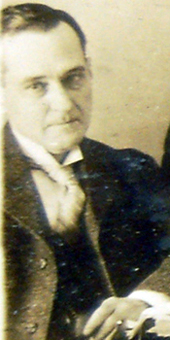William Marcellus Howard
William Marcellus Howard (born December 6, 1857 in Berwick , St. Mary Parish , Louisiana , † July 5, 1932 in Augusta , Georgia ) was an American politician . Between 1897 and 1911 he represented the state of Georgia in the US House of Representatives .
Career
Still in his youth, William Howard came to Georgia with his parents, where he attended public schools and Martin's Institute in Jefferson . He then studied until 1877 at the University of Georgia in Athens . After a subsequent law degree and his admission as a lawyer in 1880, he began to work in Lexington in his new profession. Between 1884 and 1896, Howard was a district attorney in the Georgia Northern Judicial District.
Politically, Howard was a member of the Democratic Party . In the congressional elections of 1896 he was elected to the US House of Representatives in Washington, DC in the eighth constituency of Georgia , where he succeeded Thomas G. Lawson on March 4, 1897 . After six re-elections, he was able to complete seven legislative terms in Congress by March 3, 1911 . During this time the Spanish-American War of 1898 fell .
In 1910, Howard was no longer nominated for re-election by his party. Between 1905 and 1912 he was also a board member of the Smithsonian Institution . In 1910 he was one of the earliest board members of the Carnegie Endowment for International Peace foundation founded by Andrew Carnegie . Between 1911 and 1913, Howard was a member of the United States Tariff Board . In 1913 he moved to Augusta, where he practiced as a lawyer. He died there on July 5, 1932.
Web links
- William Marcellus Howard in the Biographical Directory of the United States Congress (English)
- William Marcellus Howard in the database of Find a Grave (English)
| personal data | |
|---|---|
| SURNAME | Howard, William Marcellus |
| BRIEF DESCRIPTION | American politician |
| DATE OF BIRTH | December 6, 1857 |
| PLACE OF BIRTH | Berwick , Louisiana |
| DATE OF DEATH | July 5, 1932 |
| Place of death | Augusta , Georgia |

